
Right Red Reads for Labour Conference '22
23.09.22
Coinciding with Labour conference a wave of books Philosophy Football's Mark Perryman chooses the ones that make us think
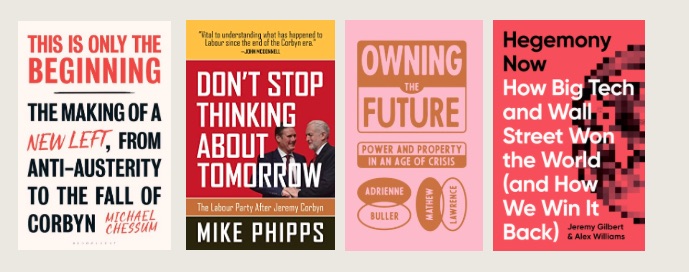
For years, decades, the annual Labour Party Conference hasn't been much more than a glorified rally. It's easy to blame this descent into media spectacle on Peter Mandelson, but then Jeremy Corbyn did little or nothing to change this with conference delegates indulging in endless choruses of Oh Jeremy Corbyn. Not a lot of any particular note takes place but in and around the fringe , particular The World Transformed Festival and this year the launch of the Compass Win as One campaign there are at least some signs that Gramsci's concept of the party as an 'organic intellectual' isn't entirely dead as a proverbial.
To help serve this survival of hope a heap of books are published every September, or thereabouts. of a broadly Labour orientation. This year isn't any different, if anything more than usual and for the most part looking forward to the Labour version of 'what is to be done' (with apologies to VI Lenin) rather than as in previous years 'what did we do wrong'. Agree or disagree with the conclusions, these are books designed to set readers thinking, they succeed or fail to the extent they succeed in this objective.
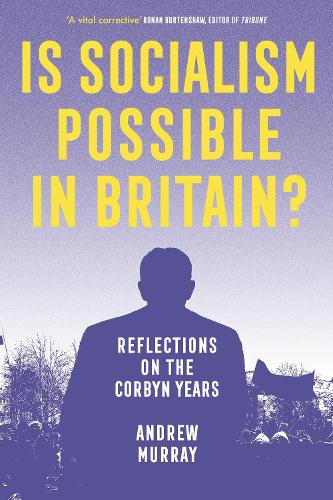
A kind of companion volume to his last book The Fall and Rise of the British Left (published for a previous Labour Conference, 2019 when shortly after 'rise' most definitely changed to 'fall') Andrew Murray's Is Socialism Possible in Britain? Reflections on the Corbyn Years is a, perhaps surprisingly, critical read. Murray loses patience with Corbyn's indecision and caution but most of all on Brexit. The backing of a second referendum he sees as central to the 2019 defeat. Murray was one of a triumvirate of key advisers to Corbyn, Seumas Milne and Steve Howell the other two, with a political background connected to the hardline tradition of the Communist Party, his wide-ranging critique displays a thoughtfulness and openness to alternative views that this tradition, particularly on the USSR, wasn't exactly renowned for. However having little time for the awkward fact the overwhelming majority of Labour members were, and remain (sic) anti-Brexit, and in 2019 backed the second referendum option, suggests a 'politics from below' still has some way to go. As for answering the question ' Is socialism possible in Britain' most readers, me included, will surely answer, for good or ill, that's one -ism unlikely to be promised in the next Labour manifesto, is it?

The Starmer Project : A Journey to the Right by Oliver Eagleton attempts to explain the meaning for the shift from Corbynism to Starmerism via a potted political biography of Sir Keir. The book is certainly rich in well-researched detail, much of it previously unpublished and the kind of details that Sir Keir would probably prefer remained unpublished. But the narrative is framed by a politics that borders on the conspiracist. There's this bloke called Starmer, he's not what he seems, he's fooled a lot of people and this needs exposing. What such a narrative amounts to is entirely writing off the reasons he won the leadership election, why so many who'd backed Jeremy, 60% is one reliable estimate, switched to Keir. The relative acquiescence by Labour to the shift he then executed to the right cannot be explained by a conspiracy. And Labour's prospects at the next General Election can't be accounted either simply by a yearning for the return of Corbynism.

With Our Bloc : How We Win James Schneider attempts, via an extended polemic, something different. Citing Gramsci, Stuart Hall and Chantal Mouffe on hegemony and populism is a good start, however while wide-ranging for such a short book the link between theory and practice tends to get lost in establishing the correctness of James' argument. A 'bloc' that extends beyond, but doesn't reject Parliamentary Socialism, Ralph Miliband and Raymond Williams are both also cited, is absolutely correct. But I lost count the number of times James said X, Y, Z could do this, or that, for such a bloc to materialise but not much about either 'how' or 'why' in the past initiatives such as Enough is Enough haven't become the kind of bloc of James describes. Perhaps this time it will be different?
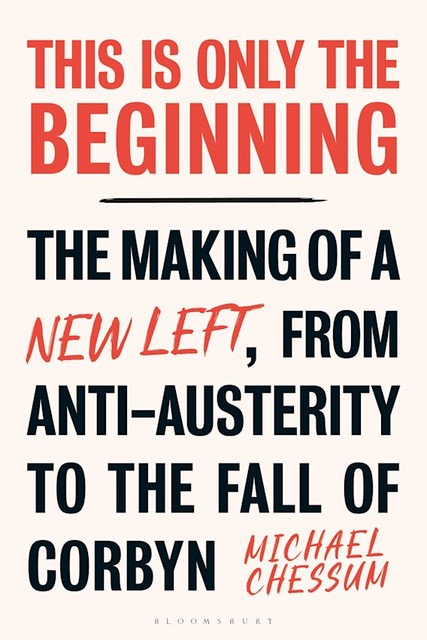
Though the points of disagreement may be marginal to all but those most immersed in the marginalia of the left Michael Chessum comes to the subject of the Labour Party from a different politics to Andrew Murray, Oliver Eagleton and James Schneider who broadly share the same perspective on the Corbyn-Starmer shift. This is Only The Beginning: The Making of a New Left, From Anti-Austerity to The Fall of Corbyn is Michael's hugely impressive testament to the point of this disagreement. His argument has an interesting and quite original format, of the proverbial two halves. First half, he locates the core of Corbynism's support generationally in the anti-tuition fees movement of 2010-11 and afters. The period when Paul Mason famously declared Why its all kicking off everywhere. In the second half Michael connects this ferment to both the rise, and fall, of Corbynism. Shorn of conspiracism, full of depth and an understanding why the fact Labour members, including the 'kicking off' generation, are overwhelmingly anti-Brexit but no remain dupes either, this is a read the left needs right now. What a shame then not a mass market cheap paperback and instead an expensive £20 hardback, sorry, a massive missed opportunity by the publisher.
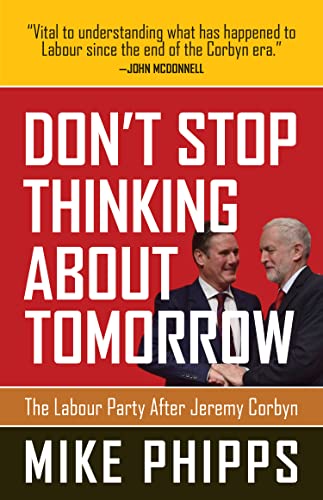
From a different generation to Michael, and wading through the left marginalia, not of quite the same politics either, nevertheless Don't Stop Thinking about Tomorrow: The Labour Party after Jeremy Corbyn by Mike Phipps can almost be read as a companion, 'oldie version' to This is Only the Beginning. Mike's book deals in greater depth with the 'what happens next' which is the shortest section in Michael's, and all the better for it. No wild-eyed party romantic, Mike is in it for the long haul, with a powerful indictment of the flunking out position. This is the politics that Murray, Eagleton and Schneider reject personified, this trio prefer to demonise, by John McDonnell. Whether the space remains for such a left is an open question but Mike Phipps gives us the grounds for, just, maybe. And as an added bonus, the publisher chose a cheap(ish) paperback price £13.

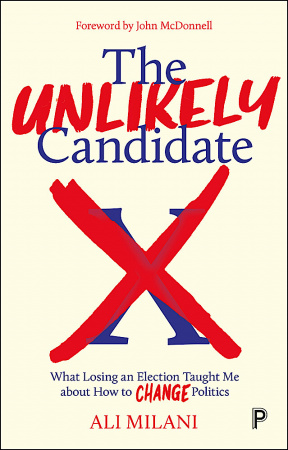
Two books take a very different, and most compelling, approach to exploring the current state of Labour, both written by Labour candidates in the 2019 General Election (spoiler alert: neither won). Ali Milani The Unlikely Candidate : What Losing an Election Taught Me about How to Change Politics is Ali's account of his campaign to unseat Boris Johnson in Johnson's Uxbridge and South Ruislip constituency. Targeted by Momentum as a winnable seat the campaign was both high profile and enjoyed considerable activist support. Winnable? If only! Defeated but unbowed Ali weaves his experience into a portrayal of what the transformation of Labour into a community based, practical activism led Labour Party would look like. Something very different to the more mainstream version currently acing as the very limit of the party's ambition. If Uxbridge might have seemed winnable Brentwood and Ongar was off the scale, a safe and solid Tory seat. Oly Durose came a distant, very distant, second for Labour in 2019 but it spurred him to write a fascinatingly original book Suburban Socialism (or Barbarism) . 'Blue Wall' seats are where Labour and the Liberal Democrats, despite losing, did proportionately better than elsewhere. Oly has unearthed a new battle ground, suburbia. Too late for his own campaign, yet much informed by it, he mixes national identity, economic unrealities, Mark Fisher's 'capitalist realism' and more to summon 'suburban socialism' into existence.
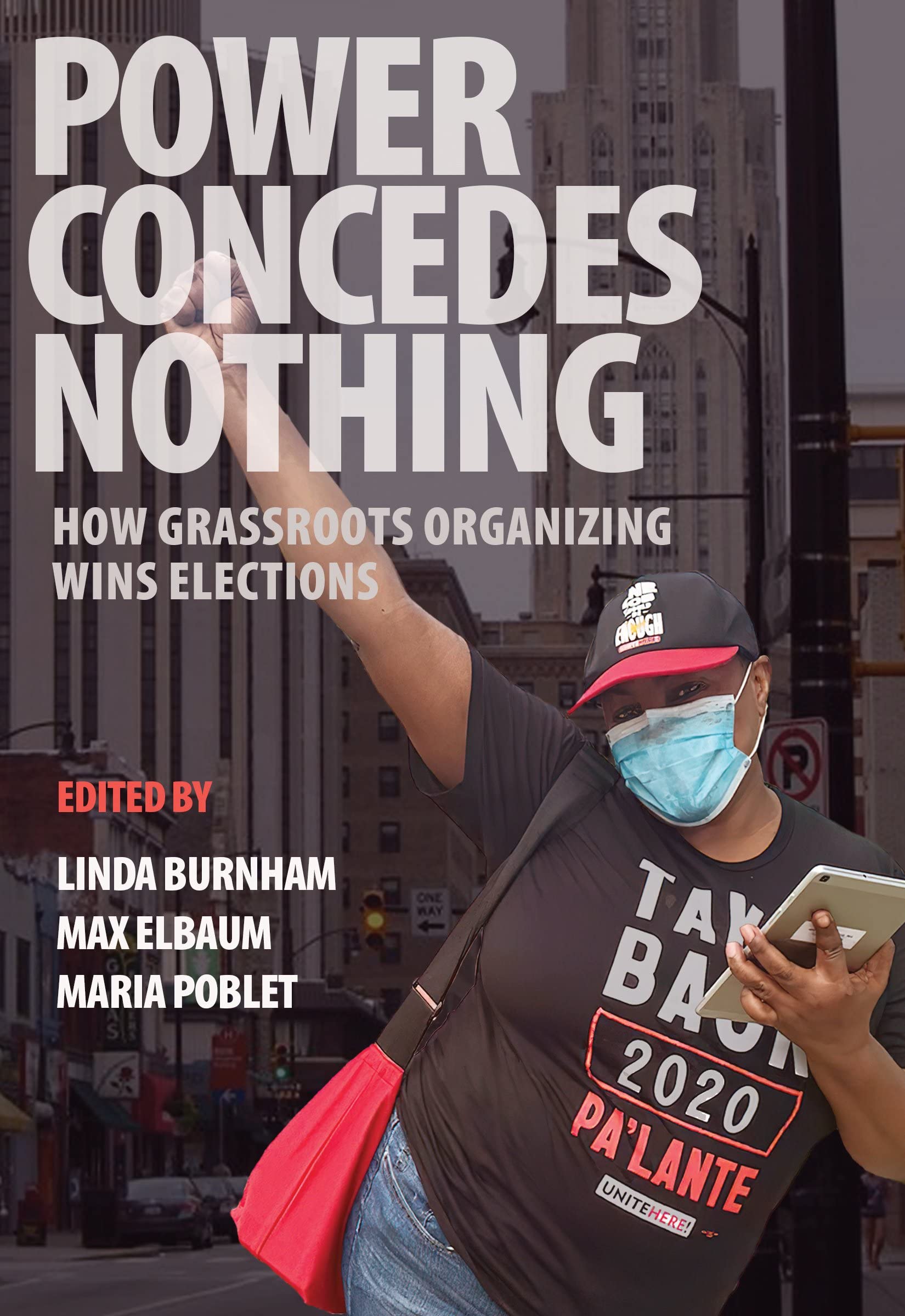
Both books draw on the Bernie Sanders campaign for inspiration. To win Democrat primaries against all odds house by house, street by street, block by block, neighbourhood by neighbourhood all the way up to the Democrat Presidential nomination, almost. Power Concedes Nothing: How Grassroots Organizing Wins Elections edited by Linda Burnham, Max Elbaum and Maria Poblet examines this model of highly localised organising with hugely radical purpose that has a rootedness in the US left mostly absent over here. My advice, read and learn.


But to effect change, from the local to the global, means Labour needs policies that disrupt and transform the current consensus. A consensus constructed mostly by policing the boundaries of possibility. The growing plight of 'Generation Rent' exists outside of that consensus, both plight and solutions. Vicky Spratt's Tenants puts that right, and then some, a politics centred on the same would both re-order mainstream politics' priorities and connect with those excluded by those self-same priorities as they currently exist. The current basis of the British state, the Union, is an absolute pillar of consensus politics. Yet independence is of course a huge issue in Scotland, and to a lesser extent in Wales too. But in England, by far the most populous of the three nations on this island it scarcely figures except as a 'coalition of chaos' scare story. Labour, outside of parts of the Welsh party, supports the consensus though a big part of this is the politics of wilful omission. Thus, when Labour chooses to 'wrap itself in the flag' it is the Union Jack; England's St George, the Scottish Saltire, the Welsh Dragon remain unwrapped. The party entirely uncaring of any impact this has in Scotland, Wales and indeed England. To help correct Labour Unionism Scotland Rising : The Case for Independence from the Scottish political commentator Gerry Hassan should be required reading for every Labour conference delegate and a major session at The World Transformed but we all know it won't be, as a result Unionist Labour in Scotland trundles on towards self-destruction
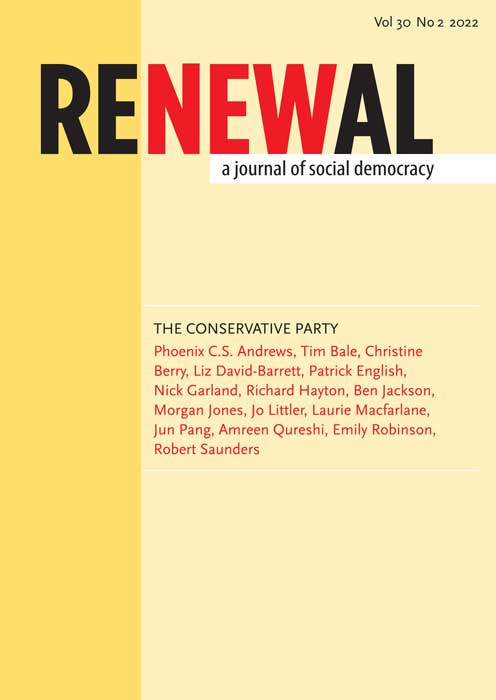
Debate at conference is as carefully staged managed as the leadership can get away with. Meanwhile the fringe strictly divides itself into the right and the left, dialogue in-between next to non-existent, pluralism, for both sides, a dirty word. All together a most unhealthy political culture. Renewal: A Journal of Social Democracy provides a portent of what a Labour Party rooted in dialogue and pluralism might look and feel like. Despite being under resourced and a bog-standard design Renewal is full of heterodox and original writing on Labour's identity, this year alone the politics of coalition, The Conservatives' political economy all treated with a depth and rigour unheard of in the rest of Labour's left media. Published quarterly, much of it free to download too and supplemented by a blog too, my advice? Subscribe, here.
Bit by bit an alternative to Starmerism, ideas-wise is emerging, and any optimism lies with this coming almost entirely from a new generation left. The Labour Right have the numbers, and don't they know it, but for ideas all eyes leftwards. Two, very different books absolutely prove my point.

Owning The Future : Power and Property in an Age of Crisis co-authored by Adrienne Buller and Matthew Lawrence (respectively Director of Research and Director at the Common Wealth thinktank) could pretty much be the basis for the next Labour manifesto, of our dreams. Beveridge, Keynes and Cripps rewritten, updated, transformed with a bit of 21st century Bevan thrown in for very good measure. Vital, because without Labour addressing the role of the state and public ownership in reversing four and a half decades worth of neoliberalism triumphant what would a Labour victory amount to in 2024? A very welcome Tory defeat on the basis of the lowest expectations imaginable.

If Adrienne and Matthew raise our expectations to the policies of the possible, Jeremy Gilbert and Alex Williams' Hegemony Now : How Big Tech and Wall Street Won the World (and How We Win It Back) do the same with the politicsof the possible. Power and agency, a strategy towards effecting radical change via the broadest coalition of support imaginable, the breadth of support an organic part of that process, this is what Jeremy and Alex describe. It was in the 1980s via Stuart Hall and the magazine Marxism Today in particular that Gramsci, the war of position, hegemony achieved a purchase on parts of the Left. It is the measure of Jeremy and Alex's achievement that they have managed to reinvent this most creative of left intellectual legacies for an entirely new generation scarred by the consequences of the failure of these ideas to become a majoritarian left tendency the last time. Better luck this time?
Whether in Liverpool for Labour Conference or observing with interest, despair, hope from afar Owning the Future and Hegemony Now more than most provide the signposts for a Left equipped to help shift despair to hope. And in the process prepare ourselves for the two years until the 2024 General Election as active participants in proving that low expectations don't have to be all we can look forward to.
Note No links in this review are to Amazon. If it can be avoided buying from corporate tax dodgers, please do so

Shankly on socialism With Labour Conference taking place in Liverpool,well we couldn't resist, available from here